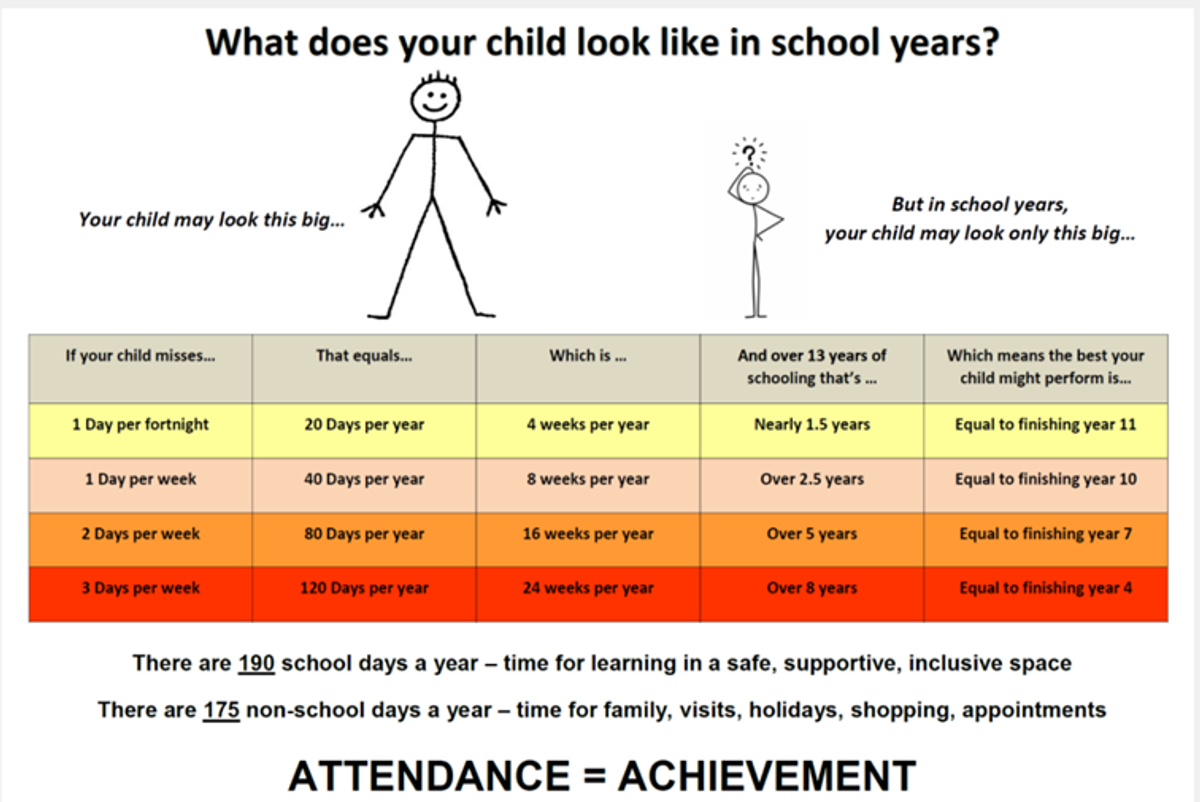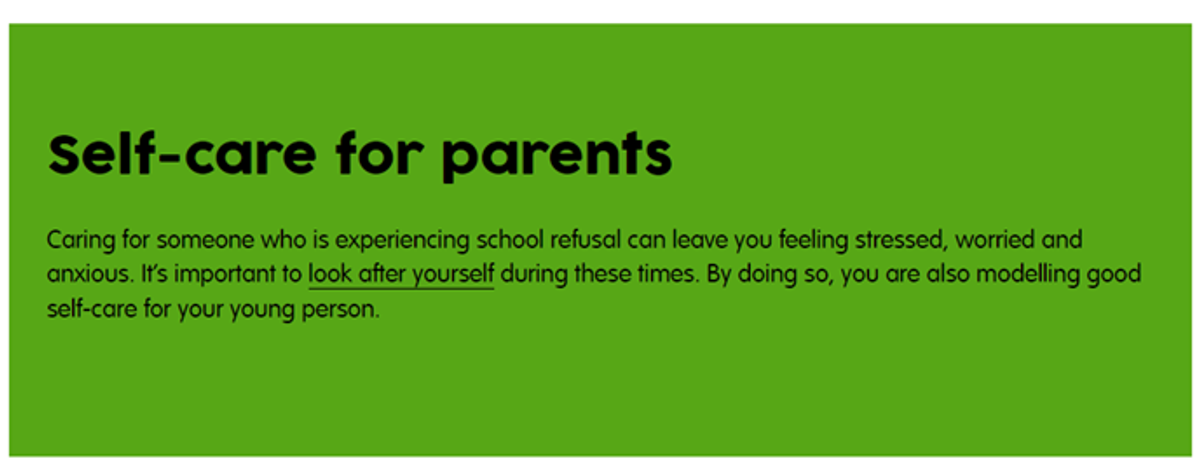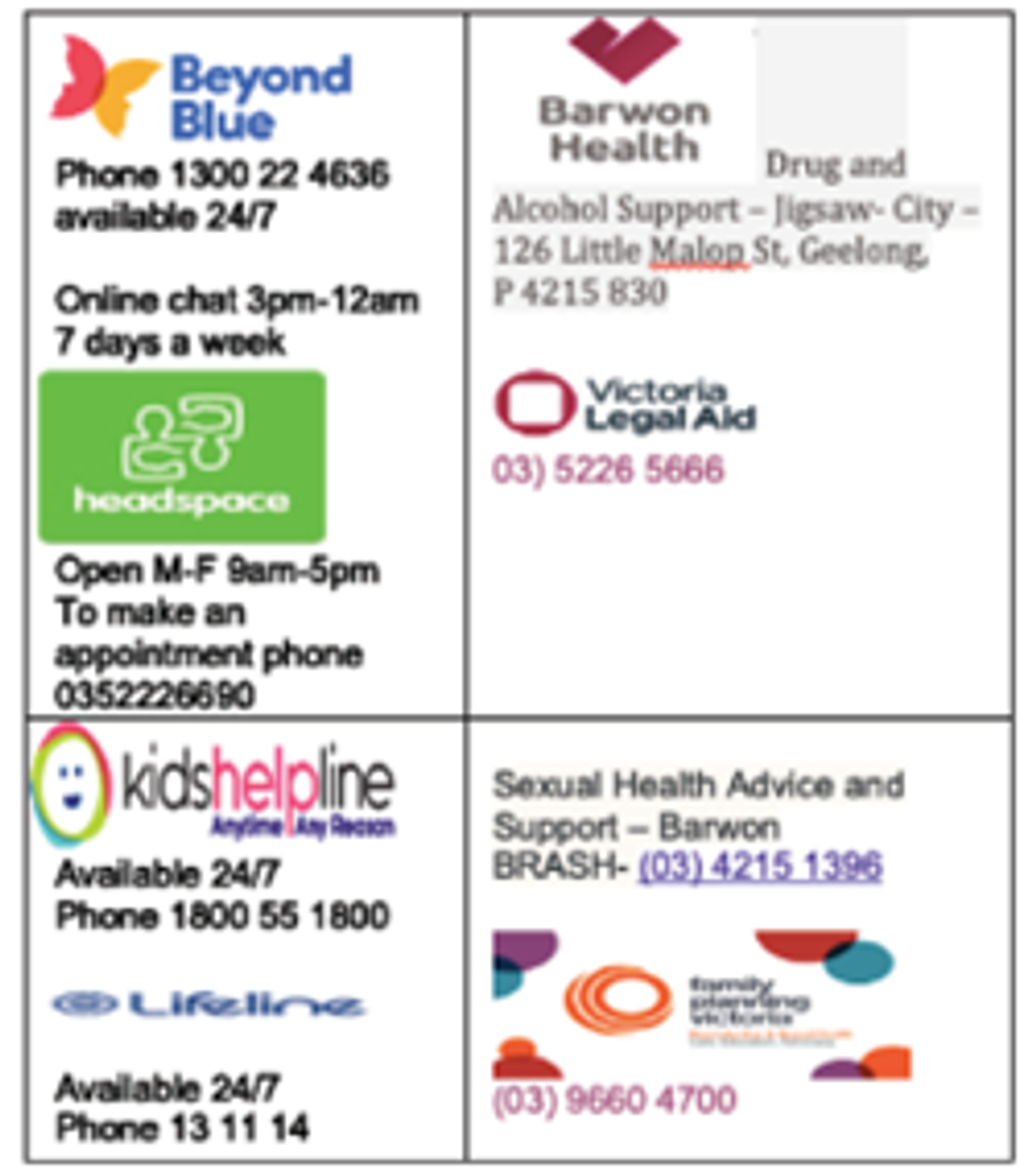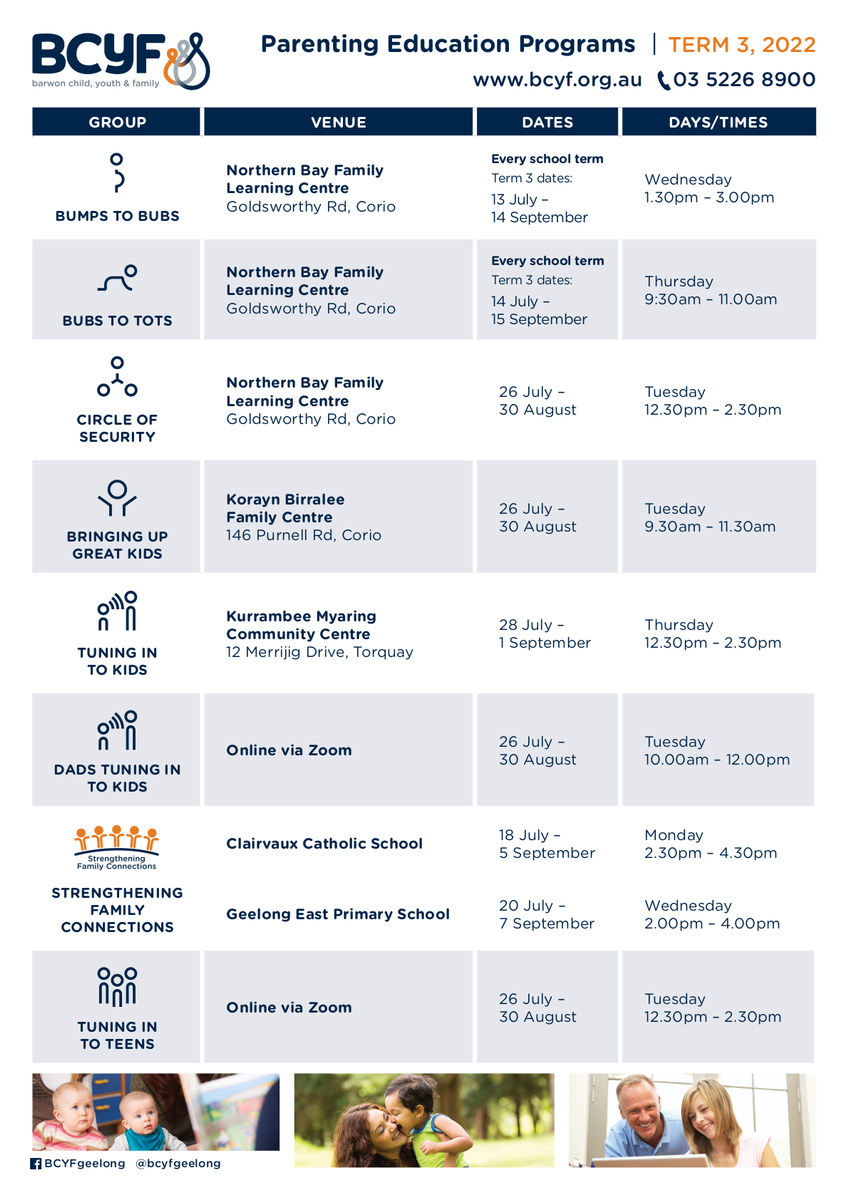WELLBEING

The Wellbeing Team have really enjoyed the steady pace of Term 3 and the time spent with the students. In the coming weeks we know we will be extra busy with Wear It Purple Day on Thursday 25th August and RUOK day on 8th September. RU OK day is starting to take shape and more news will be shared shortly.
We are heading into the last stretch for our Year 12 students here at Surf Coast Secondary College, in fact one student just told us it is like 31 days left of school…..
It has been an absolute pleasure to watch not only their personal growth as a group but also each individual student, setting goals and reaching for the stars in their promising and exciting futures. I know as a team in wellbeing we are excited to see where they will end up and what career path they will choose. The Wellbeing Team wish them a great end to Term 3 as they enter final SACS in the coming weeks.
Attendance and Building Resilience In Our Young People
This newsletter we will explore student engagement, attendance and building resilience. There are many reasons why students have low attendance at schools. As a school we know it is vital for students to attend and engage with the learning opportunities offered to them- but sometimes it is just too hard to get that young person out the door and physically to school. We also know that for a young person it is important that they feel a sense of belonging to the school community, their teachers, friends, and family. Rather than looking at all the doom and gloom of why students may not attend, the wellbeing team like to encourage our young people to put on a cape of resilience- with capacity to rebuild and grow from diversity.
The overall school attendance picture in Australia is good. Year 1-10 students attend, on average, 92% of ‘available school days’ in Australia (ACARA, 2018). The overall proportion of Australian students who attend school regularly is also good, with 75% of Years 1-10 students attending at least 90% of available school days (ACARA, 2018).
We can all sometimes feel unmotivated or not want to go to work. Young people too can experience this and these experiences are normal.
Sometimes though, the idea of going to school can be cause for severe distress for a young person and can result in a reluctance to go to school and an increase in nonattendance. High levels of distress and a reluctance to go to school is known as school refusal.
Young people might appear to be feeling ill or unhappy the morning before school with a desire to stay home. They might have an emotional reaction at the idea of leaving for school in the morning.
There are often several factors that can contribute toward the development of school refusal behaviours including individual, family, school and the community. A young person may be experiencing anxiety, their parents may be separating, they may have transitioned from primary to secondary school or experiencing challenges with peers such as bullying. There can be a range of underlying factors that result in severe distress associated with school.
School refusal is different from truancy, as often family and friends know that a young person is not attending school. Often, family and friends are unable to get a young person to attend school despite their best efforts.
The good news is that with some strategies and the right support, things can get better for your young person.
Effects of school refusal
School refusal can negatively impact a young persons’ learning and development. It can affect friendships as well as social standing due to missed opportunities to connect with friends and other students.
The longer the issue persists, the more difficult it can be for your young person to get back into the routine of going to school, so it’s important to respond early.
Signs to look out for:
School refusal can manifest in many ways. Things to look out for might be:
- distress and anxiety about going to school
- tearfulness before school, sometimes resulting in conflict with family members
- frequent complaints of physical illness before or during school including headaches, tiredness, stomach upsets or diarrhoea
- poor teacher/student relationships
- refusal to get out of bed, leave the house or get out of the car to go to school
- difficulty attending school after disruptions to usual school routines such as holidays, school sporting events or school camps
- frequent absences from class including being late or periods spent in the sick bay.
How to support your young person return to school
If you’re caring for a young person who is refusing to go to school, early action can help prevent behaviours from becoming longer-term habits. Modelling effective communication and problem solving at home can encourage your young person to do the same.
You can support your young person by:
- Finding a time when you both seem calm, then ask your young person about their concerns and worries about school. These issues can start to be addressed if they are known. Sometimes it can help to ask direct questions:
- are you being bullied?
- are you struggling with the school work?
- are you having issues with the teachers?
- is something else bothering you?
- Exploring different ways your young person can try to manage their worries. Focus on their strengths and ways to positively engage in day-to-day activities
- Learning relaxation techniques together, such as breathing exercises, or meditation, to help reduce feelings of stress and anxiety.
- Creating a plan together that explores ways to manage the beginning of the school day, school term, school year, social situations or school work, depending on what is troubling your young person.
- Speaking to the school and developing a collaborative plan. A clear and well understood plan between a young person, parents or carers and the school can be a useful tool in addressing school refusal
- Considering if your young person may benefit from professional support to assist them with strategies and to better understand the underlying reasons for their school refusal.
Where to go from here …
Why is resilience important?
Students experience a tremendous amount of physical and mental growth on a daily basis. Between school, co-curricular activities, work and their social life, young people face lots of new experiences and challenges. Being resilient gives them the ability to tackle these head-on, bounce back from any setbacks and have the best chance at succeeding. It allows them to learn and grow in all situations – two skills that are crucial to wellbeing and development. Resilience will also help them to approach new situations, people or experiences with confidence and a positive mindset, which will make them more likely to succeed.
How can we build resilience?
We are all innately resilient, but fear, insecurity and doubt can take over in moments of stress or anxiety. These responses can affect our ability to draw on our resilience just when we need it most. Luckily, there are a few ways we can encourage and build resilience in our young person.
1. Create safe and supportive environments
Focus on developing an environment where your young person feels safe and supported. Encourage them to try new things and emphasise the growth and learning opportunities they are presented with when they fail or make a mistake.
When our young person feels like the outcome won’t affect them negatively, they are more likely to try new and more challenging things in their lives and at school. Being able to learn from mistakes and challenges in a place where they feel supported and encouraged will build their confidence, self-belief and resilience.
2. Celebrate any progress, not just success
When it comes to building resilience, it really is all about the journey and not just the destination! When we only celebrate the wins, we instil a belief that the only thing that matters is success. In order to build a positive mindset and a willingness to grow, it’s important to focus on progress and not just success. This can be done through providing open feedback to your young person that focuses on their effort rather than the outcome.
Encourage your young person to set goals for themselves that provide challenges and stimulation. Celebrate every time they overcome a hurdle along the way and move closer to achieving their goal. This could focus on something academic (such as a challenge to read a certain number of books over the term) or relate to an area a student finds challenging (such as encouraging a shy student to participate in a school performance). You can help them to celebrate the small milestones along the way by communicating regularly with their teachers to let them know of your child’s progress.
3. Provide opportunities for goal setting and reflection
Building resilience is all about maintaining a positive mindset, a willingness to grow and an ability to learn from setbacks. Setting goals and making time for reflection have been shown to help maintain focus and create momentum in times of growth and change. Breaking down situations, issues or even goals into smaller, less intimidating chunks can make it easier for your young person to stay in a positive mindset so that they are less likely to be deterred by setbacks. Creating environments where they feel confident to discuss what they want to achieve and their strategies for doing it is important in helping them to build resilience.
4. Develop a sense of belonging within the school community
Research shows that a great way to build resilience in young people is to help them feel a part of something bigger than themselves. When teens feel that what they do or contribute matters on a larger scale, they are more likely to push through setbacks and to remain optimistic about the outcome. Encourage your young person to engage with the school and community beyond their social groups by volunteering at vents, mentoring younger students or participating in whole-school events such as the school musical. Being involved in what’s happening with their peers and the faculty instils in them a belief that their involvement can and will have a positive effect on others as well as themselves.
Other useful resources
ReachOut - How to make friends at school
ReachOut - Living with school stress
What’s New?
Podcasts | Drug and Alcohol Research and Training Australia (darta.net.au)
A great new podcast for those loving a great one is - Paul Dillon- Generation Next – And they are FREE!!
BCYF - Barwon Child, Youth & Family
Surf Coast Shire Early Years in partnership with BCYF are hosting a 6 week Tuning in to Kids support program for parents of children aged 3 years – 12 years.
The program aims to:
• Help parents teach their children to understand and manage their emotions.
• Support parents in encouraging children to express emotions appropriately.
• Maximise children’s social, behavioural and learning outcomes.
Thursdays weekly 28 July – 1 September
12.30pm – 2.30pm
Kurrambee Myaring Community Centre, 12 Merrijig Drive, Torquay
Bookings are essential.
For more information and to book your place, please contact:
5226 8900
-------------------------------------------------------------------------------------------------------------------------------------









